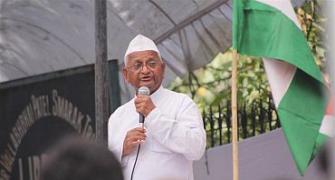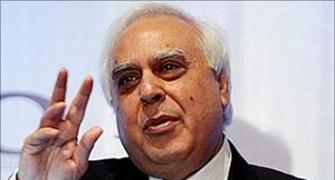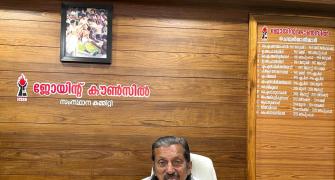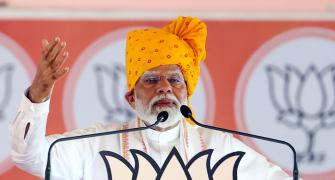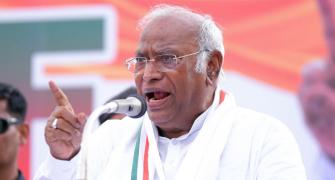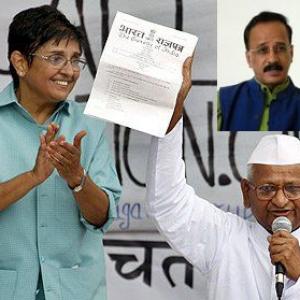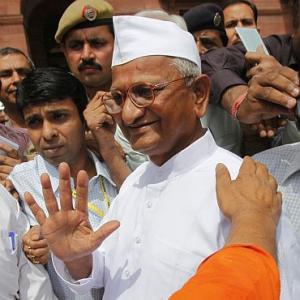The Delhi police have denied permission to social activist Anna Hazare to go ahead with his fast at Jantar Mantar on Wednesday to protest against the clampdown on yoga guru Baba Ramdev and his supporters.
The government has been receiving flak from all sections -- its political opponents as well as the common man -- for the police atrocities meted out to Ramdev's supporters and it's morals are being questioned. But the more important issue is -- Is the government constitutionally right in doing so?
Firstly, the right to fast comes under Article 19 of the Constitution, which deals with the right to expression. The government's decision to crackdown on persons observing fasts can be debated on various counts.
According to legal experts, the decision of the government to deny Hazare the permission to go on fast can be challenged before the Supreme Court, which has made a plethora of judgments on this issue. The SC has time and again defined the right to speech and expression as imbibed under the Constitution.
Legal experts say that India had attained Independence through peaceful protests and going by the protests carried out by both Ramdev and Hazare there is no doubt that they are following the footsteps of our freedom fighters.
There is no ruling by any court in India, which imposes a ban on fasting. It is an individual right to go on fast and it cannot be denied unless and until there is an illegality.
Legal experts say that the manner in which the government has denied Hazare the right to hold a public fast is incorrect. The government has made attempts to justify itself, none of which can be accepted.
"The government claims that they will face a law and order problem if Hazare was given a go ahead to hold the fast. But, what happened with Ramdev. While he was on a fast there was no violence, the problem only started after the crackdown. By curbing the right to go on fast, the government is acting in a manner opposed to the Constitution," say experts.
While dealing with such issues, the government needs to take into account the nature of the protest before denying permission. They can act only if they feel that the protest is turning violent.
What the government needs to see is that the protests held in the past by Hazare have been peaceful. Hence, they have no justification to deny him permission. What the government can do is fix responsibility on the person leading the protest to ensure that security is not compromised.
It can deny permission from holding a fast only if the person claims that he will fast unto death. There is no law that allows this. Fasting unto death falls under the ambit of an attempt to commit suicide and action can be taken against such a person under section 309 of the IPC. Only in such a situation arises can a person be forcibly evicted, say experts.
Justice Santosh Hegde, Karnataka lokayukta and member of the Lokpal drafting committee, says that the government has not acted correctly. "The government should not have denied permission to Hazare. The government is within its rights to take action only if the assembly turns violent."
On whether the Lokpal drafting committee would continue to boycott the meetings in the event of the Baba Ramdev fiasco, Hegde said that there is no such plan. "The meetings will go on as per schedule."

